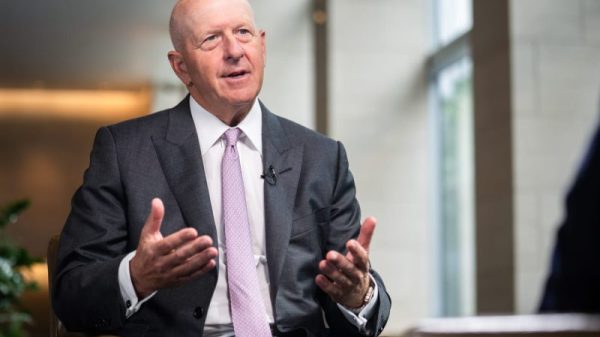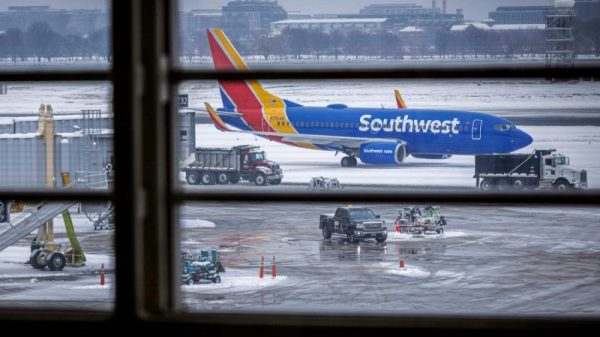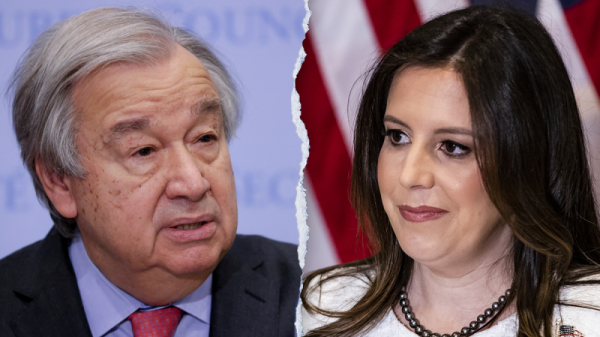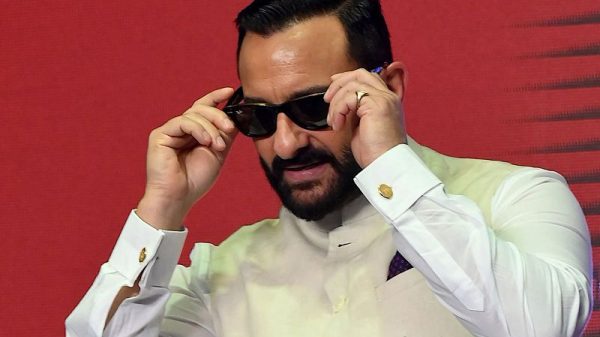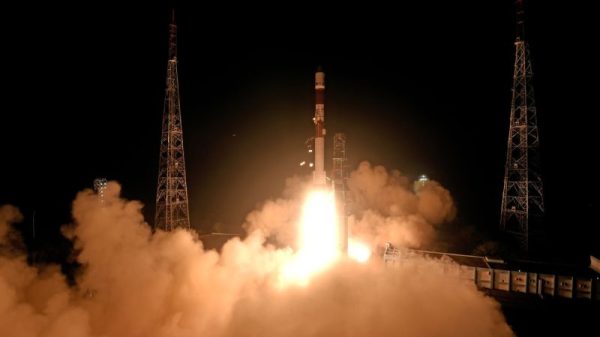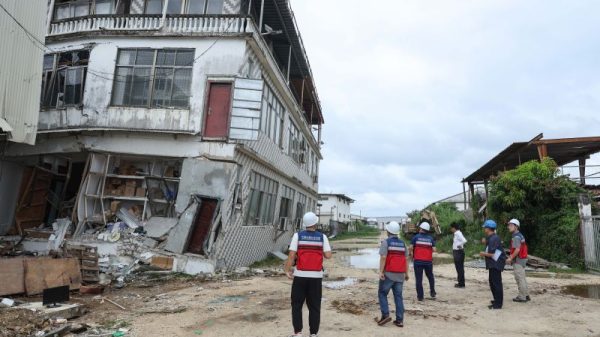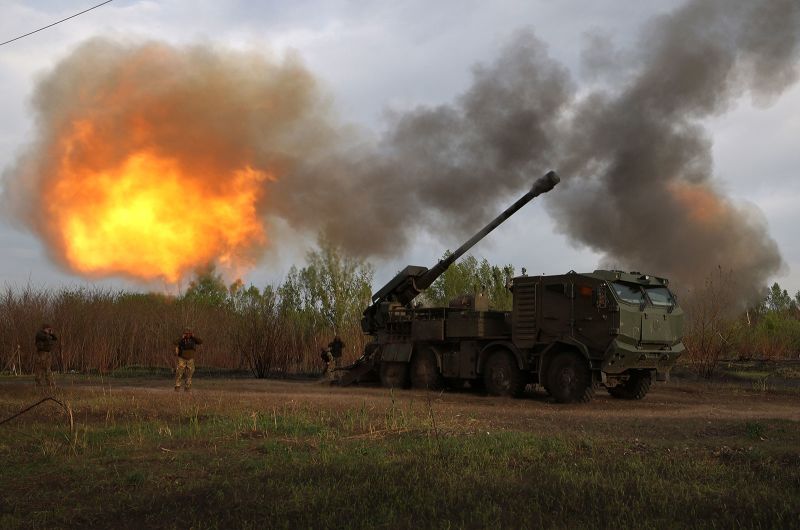Soldiers on the front lines in Ukraine say the prospect of final approval in the US Congress of a $60 billion military aid package for Kyiv will serve as a giant morale boost as Russia looks to step up its advance.
The Ukraine aid bill, passed in the United States’ House of Representatives on Saturday, is now due to go to the Senate on Tuesday. If passed in Congress’s upper chamber then President Joe Biden has said he will sign it into law immediately, so that “we can quickly send weapons and equipment to Ukraine to meet their urgent battlefield needs.”
Ukraine’s wish list is no secret. At the top: artillery shells and air defense systems.
For months, Ukrainian soldiers on the front lines have spoken of being badly outgunned by Russian forces. President Volodymyr Zelensky recently said the ratio was 10 to one in Russia’s favor.
Teren knows what he’s talking about, having spent two years defending the industrial town of Avdiivka before it fell to Russia in February. Since then, Moscow’s forces have enjoyed considerable success pushing further west.
To highlight just one of several locations in the Donetsk region: The Ukrainian monitoring group, DeepState, has tracked a series of Russian advances in the last week along a railway line into the center of a large village called Ocheretyne.
Now, with new US military aid apparently just days away from receiving the green light, the question is how quickly vital munitions like 155mm Howitzer shells can get to the front line to stop Russia’s advance.
Pentagon spokesperson Patrick Ryder, speaking last week ahead of the House vote, said the US Department of Defense was “poised to respond quickly,” once any order was given.
“As you know, we have a very robust logistics network that enables us to move materiel very quickly. As we’ve done in the past, we can move within days,” he said.
That message was echoed by Mark Warner, chairman of the Senate Intelligence Committee, who told CBS News on Sunday he hoped the materiel would be “in transit by the end of the week.”
While American officials will not say so openly, a US source familiar with the provision of military aid to Ukraine said much of it is already pre-positioned in storage facilities in Germany and Poland, which would obviously cut down on the amount of time needed to get it into Ukraine. The source also said artillery shells would be among the first materials moved forward.
Once across the border, officials in Kyiv will look to get it where it is needed as quickly as they can – but doing so will still present a considerable logistical challenge given the sheer quantity of materiel involved.
In other words, the cited ratio advantage of 10 to one that Russia currently enjoys will not be wiped out immediately.
The Institute for the Study of War (ISW) warns Ukraine will “likely continue to face ongoing shortages of artillery ammunition and air defense interceptors in the coming weeks and the corresponding constraints that these shortages are placing on Ukraine’s ability to conduct effective defensive operations.”
The ISW speculates that Russia might look to attack transportation networks like railways to complicate distribution – something it targeted on Friday in Ukraine’s Dnipropetrovsk region – and seek to up the tempo along the front lines in the limited window before US aid arrives.
One place that could be a focus of any stepped-up, immediate-term, Russian offensive could be the town of Chasiv Yar, an important forward military location for Ukraine since the Russian capture of Bakhmut – about 10 kilometres (6 miles) to the east – almost a year ago.
Multiple reports from Ukrainian soldiers describe heavy fighting in a string of villages between Chasiv Yar and Bakhmut as Russian forces try to advance. Ukraine’s army chief has said he believes the Kremlin has ordered the town’s capture by May 9, the day Russia celebrates its victory over Nazi Germany in 1945.
Chasiv Yar is also being pounded from the air by huge “guided” bombs dropped from Russian warplanes. Analyst Rob Lee has posted a series of videos on his X account in recent days showing Russian Su-25 planes flying unimpeded in the skies above the town, something he calls “a clear sign of a lack of Ukrainian air defense ammunition.”
Ukraine will be looking for the US to provide a range of surface-to-air missile systems to counter that threat, in addition to more interceptors for the Patriot air defense system, the primary means of defeating missile attacks on cities and key infrastructure, like power plants.
“We need front-line air defense as much as we need protection for our cities and villages,” Zelensky said.
Finally, in addition to its immediate weapons needs, Ukraine also looks likely to receive longer-range Army Tactical Missile Systems (ATACMS) in the initial tranche of weapons deliveries, after Warner, the Senate Intelligence Committee chairman, indicated he believed they would be part of a first shipment.
The US has already provided Ukraine with shorter-range versions of the ATACMS, but Ukrainian officials have made no secret of their desire to get their hands on the newer version. With a range of about 300 kilometers (186 miles), the missiles would give Kyiv the ability to increase attacks on Russian airfields, fuel depots and weapons storage sites, having a more long-term impact on Russia’s war effort.
And if Ukraine’s European allies believe they might now have a bit of breathing room before they are pressed again for more assistance, Ukrainian Foreign Minister Dmytro Kuleba made it clear he sees the US move as providing momentum across the board.
“We can prevent the worst-case scenarios if we act together and without fear,” he told an online meeting of EU foreign and defense ministers on Monday, appealing to those countries with Patriot and the European-made SAMP/T air defense systems to donate them to Ukraine, along with artillery and ammunition.
“Now that you are all here at the table, it’s time to act, not to debate,” Kuleba said.







